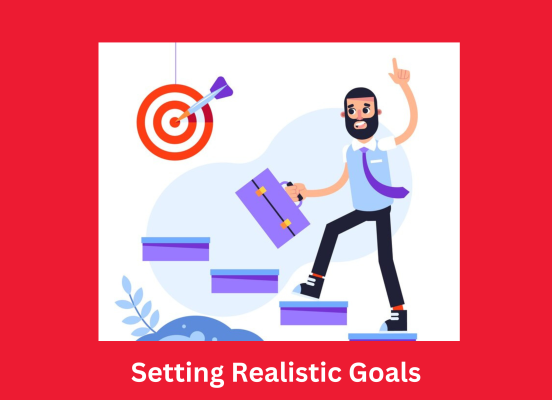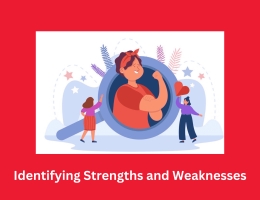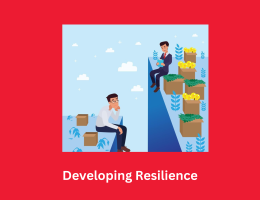
Setting Realistic Goals: Strategies for Building Self-Confidence Incrementally
- By admin --
- Sunday, 17 Mar, 2024
Introduction:
Setting goals is a fundamental aspect of personal development and growth. When done effectively, goal-setting not only provides direction and purpose but also serves as a catalyst for building self-confidence. However, setting unrealistic or unattainable goals can lead to frustration, discouragement, and a sense of failure. Therefore, it is essential to employ strategies for setting realistic goals that contribute to building self-confidence incrementally. This article will explore various techniques and approaches to goal-setting that foster a positive mindset, resilience, and a sense of achievement.
Understanding Realistic Goal-Setting:
Realistic goal-setting involves identifying objectives that are both challenging and achievable within a reasonable timeframe and with the resources available. It requires a balance between ambition and pragmatism, taking into account individual capabilities, circumstances, and priorities. Setting unrealistic goals, such as aiming for rapid and drastic changes without adequate preparation or support, often leads to disappointment and undermines self-confidence. By contrast, setting realistic goals sets the stage for success and gradual progress, thereby bolstering self-confidence and motivation.
SMART Goals Framework:
One effective approach to setting realistic goals is the SMART framework, which stands for Specific, Measurable, Achievable, Relevant, and Time-bound. By applying these criteria to goal-setting, individuals can ensure that their objectives are clear, quantifiable, attainable, aligned with their values and priorities, and anchored within a defined timeframe. For example, instead of setting a vague goal like "get in shape," a SMART goal would be "run a 5k race within three months, gradually increasing mileage and tracking progress using a running app."
Break Down Larger Goals into Smaller Milestones:
Breaking down larger goals into smaller, manageable milestones is another strategy for setting realistic goals and building self-confidence incrementally. Rather than overwhelming oneself with a daunting end goal, individuals can focus on achieving smaller victories along the way. Each milestone reached serves as evidence of progress and competence, reinforcing self-confidence and motivation. Additionally, breaking goals into smaller steps enhances clarity and facilitates planning, making the overall goal more attainable and less intimidating.
Focus on Process Goals:
In addition to outcome-oriented goals, such as achieving a specific outcome or result, individuals can also set process goals that focus on the actions and behaviors required to reach the desired outcome. Process goals emphasize the journey rather than the destination, encouraging individuals to focus on behaviors within their control rather than external factors. For example, instead of solely focusing on losing a certain amount of weight, a process goal could be to exercise for 30 minutes five times a week and track food intake daily.
Celebrate Progress and Success:
Celebrating progress and success, no matter how small, is essential for maintaining motivation and building self-confidence. Recognizing and rewarding achievements, whether reaching a milestone, overcoming a challenge, or demonstrating persistence and effort, reinforces positive behavior and encourages continued progress. Celebrations can take various forms, such as treating oneself to a favorite activity, sharing accomplishments with friends or family, or keeping a journal of successes to reflect upon during challenging times.
Learn from Setbacks and Adjust Accordingly:
setbacks are inevitable on the journey toward achieving goals. Instead of viewing setbacks as failures or reasons to abandon goals altogether, individuals can reframe them as opportunities for learning and growth. By adopting a growth mindset and embracing setbacks as part of the learning process, individuals can bounce back with resilience and adaptability, thereby strengthening their self-confidence. Additionally, evaluating setbacks objectively, identifying lessons learned, and adjusting goals or strategies accordingly enhances the likelihood of future success.
Conclusion:
It is fundamental to your personal growth that you set attainable objectives. People can develop a path towards success filled with courage, yearning, and will by taking a step-by-step approach like using SMART principles, dividing tasks / goals into less complicated subunits, employing process-based objectives, and reflecting on what succeeded and what did not in every setback experienced if they decide to apply it as explained in a5 above. Step by step as goals and objectives are met in modest ways your belief system grows from within paving the way for confidence.





